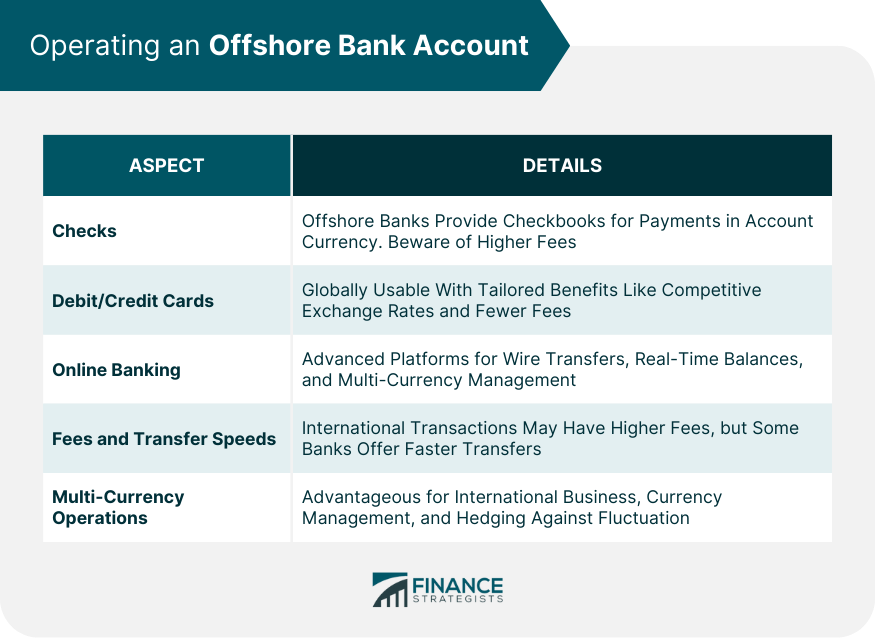Unlock Worldwide Opportunities with Offshore Company Formation
Unlock Worldwide Opportunities with Offshore Company Formation
Blog Article
Comprehending the Lawful Implications of Offshore Firm Formation

Lawful Structure for Offshore Companies
When establishing an offshore business, recognizing the lawful framework governing its formation and operation is critical for conformity and risk administration. Offshore firms run under specific laws and policies that differ from those of onshore entities. The legal structure for overseas business commonly consists of stipulations for company registration, shareholder requirements, director responsibilities, and tax obligations.
Business registration involves submitting the required documentation to the suitable regulatory authorities in the chosen jurisdiction. This procedure often calls for thorough details concerning the firm's framework, shareholders, and intended activities. In addition, overseas business need to abide by particular investor needs, such as keeping a register of investors and keeping this information up to day.
Supervisors of offshore business have fiduciary duties to act in the most effective passions of the firm and its investors. They are in charge of supervising the company's operations, guaranteeing conformity with all relevant laws, and taking care of dangers efficiently. Furthermore, recognizing the tax obligation obligations of an overseas business is necessary to avoid any type of potential lawful problems. By sticking to the legal structure regulating overseas companies, organizations can operate with self-confidence while reducing lawful risks.


Tax Obligation Effects and Laws
Comprehending the tax effects and laws is vital when thinking about the establishment and procedure of an offshore company. Tax obligations play an important role in the decision-making procedure of whether to set up an overseas entity. Offshore business are frequently based on beneficial tax obligation programs, offering decreased or absolutely no tax prices on foreign-earned earnings. However, it is necessary to navigate these tax obligation benefits thoroughly to ensure compliance with both the regulations of the overseas territory and the home country.
Tax guidelines for offshore firms differ considerably across territories, and it is vital to seek professional advice to recognize the particular needs and responsibilities. Extensive expertise of tax regulations and guidelines, as well as appropriate tax preparation, are vital to make sure the compliant and successful procedure of an offshore firm.
Compliance Needs and Reporting
Guaranteeing compliance with governing needs and maintaining precise coverage are crucial aspects of managing an offshore business successfully and transparently. Offshore firms must adhere to the legislations and guidelines of both the territory in which they are included and any kind of other relevant jurisdictions where they conduct company.
Along with governing conformity, overseas companies are frequently subject to reporting demands to guarantee transparency and stop unlawful tasks such as cash laundering or tax evasion. Reporting responsibilities may include disclosing click for more info information about the company's ownership structure, economic tasks, and recipients. This information may require to be shown to governing bodies, tax obligation authorities, or various other governmental firms, depending on the territory.
Maintaining accurate and comprehensive records is important for demonstrating compliance and reacting to any kind of queries or audits effectively. Offshore companies should implement durable coverage mechanisms and internal controls to make certain that they fulfill all legal requirements and run with stability.
Possession Protection and Personal Privacy Rules
In the realm of offshore business development, an important factor to consider is the interaction between possession defense methods and personal More about the author privacy laws. By structuring assets within an overseas firm, individuals can safeguard their wide range and diversify their holdings throughout different legal frameworks. Inevitably, understanding the detailed connection between possession defense approaches and personal privacy regulations is paramount when taking into consideration overseas business development.
Risks and Challenges to Consider
When venturing into overseas business formation, prudent factor to consider of potential risks and obstacles is vital for notified decision-making and calculated planning. One significant threat to think about is the possibility of raised examination from regulatory authorities as a result of the viewed association of offshore entities with tax evasion and cash laundering. This increased analysis can cause comprehensive conformity demands and possible legal effects if not effectively attended to. Additionally, political instability or modifications in offshore territories can pose a danger to the connection of operations and the defense of assets held by the overseas firm.
Obstacles may likewise develop worrying the complexity of offshore business frameworks and the demand for expert legal and monetary suggestions to browse the intricate regulative structures of various territories (offshore company formation). Keeping compliance with varying international legislations and guidelines, along with possible language obstacles and cultural differences, can further complicate the offshore company formation process. It is important to be familiar with these threats and obstacles prior to waging overseas firm development to minimize possible challenges and ensure a smooth and legally sound facility
Final Thought
In conclusion, offshore firm development includes navigating intricate lawful frameworks, tax effects, conformity requirements, and privacy click now regulations. Recognizing these aspects is crucial for alleviating challenges and dangers related to overseas business operations. It is essential for people and companies taking into consideration overseas business development to seek expert guidance to guarantee conformity with regulations and to safeguard their assets effectively.
The lawful structure for overseas business generally consists of arrangements for firm registration, shareholder demands, supervisor obligations, and tax responsibilities.
Directors of offshore firms have fiduciary tasks to act in the ideal interests of the company and its investors. By sticking to the legal structure controling offshore business, companies can operate with self-confidence while decreasing legal dangers.
In addition, political instability or changes in overseas territories can posture a danger to the connection of operations and the security of properties held by the overseas business. - offshore company formation
In verdict, offshore business development entails browsing complex legal structures, tax effects, conformity requirements, and privacy legislations.
Report this page